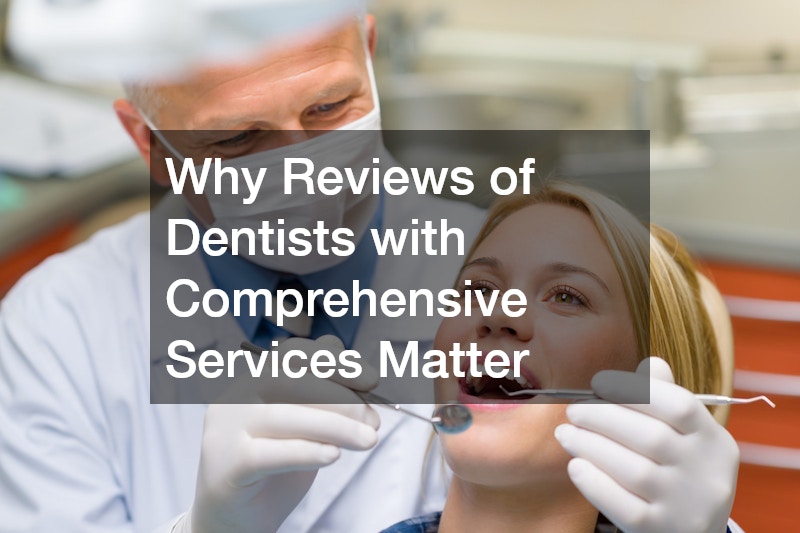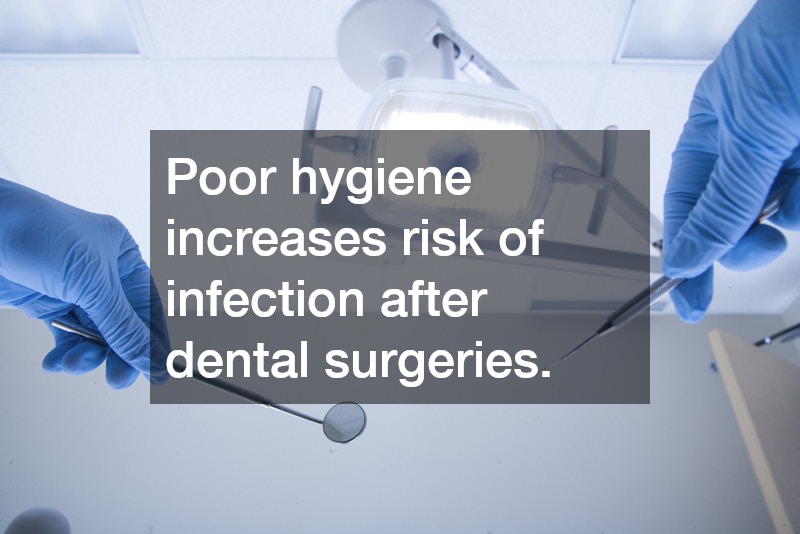-
Repeated mentions of rushed appointments can signal poor attention to detail and missed health concerns.
-
Complaints about unclear communication often lead to confusion, anxiety, or unnecessary treatments.
-
Hidden or unexpected fees in reviews suggest a lack of transparency and potential billing issues.
-
Concerns about clinic cleanliness raise serious safety risks, especially for complex dental procedures.
-
Chronic long wait times reflect poor scheduling and often result in rushed care.
-
Patterns of staff rudeness or unprofessionalism indicate broader problems with patient care.
-
Patients seeking dentists with comprehensive services should look for reviews that highlight clear explanations, transparent billing, and consistent positive outcomes across multiple treatments.
In today’s digital age, more than three-quarters of patients read reviews before booking any healthcare appointment. The trend is especially strong in dentistry because many people feel vulnerable about oral health procedures, particularly if they require complex treatments.
Reviews of dentists with comprehensive services are especially important because:
-
Patients often want one clinic that can handle preventive care, cosmetic dentistry, orthodontics, and surgical needs without referrals.
-
Choosing poorly can mean years of unsatisfactory care, repeated costs, and health risks.
-
Practices offering a wide range of treatments must be held to a high standard of communication, transparency, and hygiene, since their patients often undergo more advanced procedures.
Star ratings alone don’t tell the full story. To make an informed decision, you need to look deeper into the written feedback and identify recurring concerns.
Major Red Flags to Watch for in Dentist Reviews
1. Frequent Mentions of Rushed Appointments
Patients often highlight feeling dismissed or hurried, which can be especially concerning when working with dentists who claim to provide a wide range of services. A rushed exam means important issues might be overlooked.
Phrases to look out for include:
-
“The dentist barely looked at my teeth before recommending treatment.”
-
“I felt like just another number in the chair.”
-
“The cleaning was quick but didn’t feel thorough.”
Why it matters:
-
Health impact: A rushed appointment can miss early cavities, gum recession, or signs of oral cancer.
-
Patient trust: Patients may feel they’re being pushed into unnecessary treatments instead of receiving personalized care.
-
Comprehensive service gap: A clinic that claims to provide multiple services but can’t allocate time to basic checkups may not manage complex treatments effectively.
2. Complaints About Poor Communication
Strong communication is essential when evaluating dentists with comprehensive services. Patients often face multiple options for treatment, from simple fillings to implants or orthodontics, and need clear explanations to make confident decisions.
Common red flag comments:
-
“They recommended expensive treatments without explaining alternatives.”
-
“I left more confused than when I arrived.”
-
“No one explained the aftercare instructions properly.”
Concerns raised by poor communication include:
-
Lack of informed consent: Patients may not fully understand procedures before agreeing.
-
Increased anxiety: Clear explanations reduce fear, especially during surgeries or cosmetic work.
-
Mismanagement of expectations: Patients expect long-term solutions but may be dissatisfied if results don’t match what was promised.
3. Reports of Hidden or Unexpected Fees
Transparency in billing is crucial, particularly with clinics that market themselves as offering complete dental care. Complex treatments like orthodontics or oral surgery come with higher costs, so patients need upfront information.
Review examples that signal problems:
-
“They said my insurance covered it, but I got a huge bill.”
-
“I was charged for procedures I never approved.”
-
“The advertised price didn’t match what I was billed.”
Why this is alarming:
-
Financial stress: Unexpected fees can create long-term debt.
-
Ethical concerns: A lack of billing clarity suggests questionable office practices.
-
Reduced trust: If pricing is unclear, patients may question whether treatment recommendations are motivated by profit rather than care.
4. Negative Comments on Clinic Cleanliness and Hygiene
For any dentist, but especially for those who provide surgical or restorative procedures, cleanliness is non-negotiable. Sterilization and infection control protect patients during routine cleanings and advanced treatments alike.
Warning signs in reviews:
-
“The instruments looked old and dirty.”
-
“The waiting room and bathroom were not maintained.”
-
“I worried about sanitation during my procedure.”
Key reasons to take this seriously:
-
Patient safety: Poor hygiene increases risk of infection after dental surgeries.
-
Professional credibility: A clean environment reflects attention to detail in all aspects of care.
-
Comprehensive practice risks: Dentists with comprehensive services should maintain higher standards since they handle complex treatments requiring sterile environments.
5. Repeated Mentions of Long Wait Times
A few delays are understandable, but chronic long waits signal mismanagement. This can be a major concern for patients who need multiple appointments for orthodontic, cosmetic, or restorative work.
Examples in reviews:
-
“Every visit took over an hour just to be seen.”
-
“Appointments ran behind schedule with no explanation.”
-
“I felt the practice was overbooked.”
Why it matters:
-
Wasted time: Patients with ongoing treatment plans need reliable scheduling.
-
Quality of care: Rushed appointments often follow long delays.
-
Practice organization: Consistent delays reflect broader operational inefficiencies.
6. Patterns of Staff Rudeness or Lack of Professionalism
Staff behavior is a strong indicator of overall office culture. Patients looking for a clinic that provides multiple services often build long-term relationships with the team, so professionalism is essential.
Common complaints:
-
“The receptionist was dismissive when I asked about billing.”
-
“The hygienist made me feel judged about my dental history.”
-
“Staff seemed annoyed when I needed clarification.”
Why it’s important:
-
Patient comfort: Respectful staff reduce stress and encourage regular checkups.
-
Trust building: Friendly, professional interactions create confidence in care.
-
Comprehensive treatment success: Complex procedures often require coordination between staff; poor communication among team members can lead to errors.
7. Overwhelmingly Negative Reviews With the Same Issue
One or two bad experiences may not tell the full story, but consistent patterns across dozens of reviews should not be ignored.
Examples of recurring complaints:
-
“Unexpected charges” appearing in multiple reviews.
-
“Dentist always seems rushed” repeated by many patients.
-
“Cleanliness is questionable” across several platforms.
Why patterns matter:
-
Reliability: Multiple voices confirming the same issue are harder to dismiss.
-
Systemic problems: Consistent issues suggest deep-rooted flaws in how the clinic is run.
-
Risk assessment: Choosing a practice with recurring complaints may expose patients to ongoing problems.
How to Identify Fake or Misleading Reviews
Not all reviews accurately reflect patient experiences. Both overly glowing praise and extreme negativity can raise suspicion.
Signs of fake positive reviews:
-
Vague, repetitive phrases like “best dentist ever.”
-
Multiple five-star reviews posted in a short timeframe.
-
Lack of detail about specific treatments.
Signs of fake negative reviews:
-
Angry rants without clear details.
-
Suspiciously short and repetitive wording.
-
A sudden flood of poor reviews that doesn’t match the long-term history.
How to cross-check:
-
Compare across different platforms such as Google, Yelp, and health-specific review sites.
-
Look for balanced reviews that include both strengths and weaknesses.
-
Pay attention to reviews that describe long-term experiences rather than single visits.
Signs of High-Quality Dentist Reviews
Just as important as spotting red flags is knowing what positive, trustworthy reviews look like. Reviews of dentists with comprehensive services often stand out because they describe detailed patient journeys across multiple treatments.
Indicators of reliable positive reviews include:
-
Specific details: Mentioning treatment types such as cleanings, fillings, crowns, or implants.
-
Balanced feedback: Highlighting both positives and small drawbacks.
-
Consistency: Descriptions that align with multiple reviewers’ experiences.
-
Transparency: Notes about upfront pricing and insurance handling.
-
Patient outcomes: Reports of reduced pain, successful procedures, or improved confidence from cosmetic work.
What to Do If You See Red Flags
Noticing concerning patterns doesn’t mean you should immediately dismiss a dentist, but it does mean you need to dig deeper.
Steps to take:
-
Verify credentials: Check state licensing boards and professional certifications.
-
Ask questions directly: Call the office and inquire about wait times, billing, or hygiene practices.
-
Seek referrals: Friends, family, or colleagues may provide firsthand recommendations.
-
Check for comprehensive offerings: If you need dentists with comprehensive services, confirm that the practice provides preventive, cosmetic, orthodontic, and surgical care with the right specialists.
-
Trust your instincts: If reviews and direct interactions leave you uncomfortable, continue searching.
Reviews are one of the most powerful tools patients have when choosing a dental provider. They provide an unfiltered look at real experiences and can reveal whether a practice values professionalism, communication, and transparency. For patients searching for dentists with comprehensive services, the stakes are even higher, since these practices handle everything from basic cleanings to advanced surgical procedures.
By learning to recognize red flags such as rushed care, poor communication, hidden fees, hygiene concerns, or recurring complaints, you can avoid practices that may compromise your health or financial well-being. At the same time, knowing how to spot authentic positive reviews helps you identify providers who deliver quality care consistently.
Ultimately, choosing the right dentist requires balancing what you learn from reviews with your own research and instincts. The effort pays off in peace of mind, healthier teeth, and a long-term partnership with a provider who truly supports your well-being.

